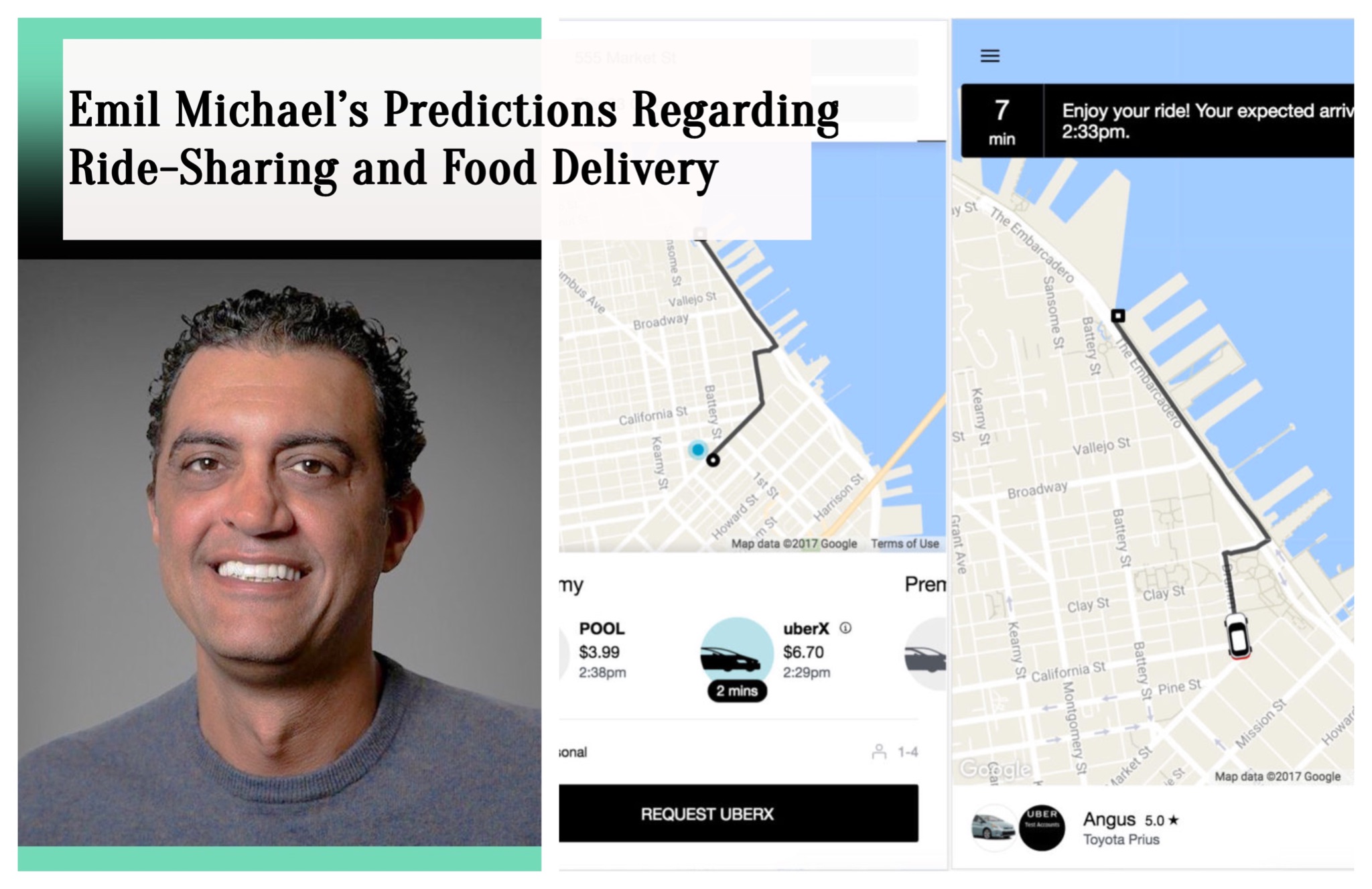DPCM Capital chairman and CEO Emil Michael is often in demand to discuss the fate of ride-sharing and food delivery apps. Uber’s previous chief business officer has appeared on Barron’sMarketBrief and CNBC’s TechCheck revealing his projections on the subject.
Emil Michael predicts a big recovery in ride-sharing relative to what occurred in 2021. “On food delivery, I expect slowing growth as people return to restaurants,” Emil Michael says. “However, for quick commerce, I see massive growth as people double down on saving a trip to the convenience store.”
As quick commerce, or q-commerce, soars in popularity with consumers, Emil Michael envisions traditional grocery stores disappearing altogether in the next decade. While the ride-sharing business took a hit during the pandemic, food delivery boomed. Bloomberg reports meal-delivery services skyrocketed 13% from 2020 to 2021.
Emil Michael ForeseesQuick Commerce Continuing To Soar
On Twitter, Emil Michael recently praised quick commerce and the progress of Gopuff, a Philadelphia-based food and consumer goods delivery company he invested in early. As the father of a toddler himself, he knows firsthand the benefits of quick commerce and how essential it’s become to so many Americans’ lives. Gopuff generated more than $2 billion in revenue last year as reported by Axios.
Gopuff’s co-founder and CEO Rafael Ilishayev revealed on the This Week in StartUps podcast that Gopuff’s average delivery time is just 17 minutes — and in New York City, it’s even faster, with delivery times in the low teens. The brand has fulfillment centers ranging from 5,000 to 20,000 square feet, according to Ilishayev. And Gopuff’s expansion is exploding. Roughly 30% of Americans are within 1-and-a-half miles of a Gopuff fulfillment center.
Billions of dollars of venture capital are flowing into Gopuff, which currently operates 300 fulfillment centers across the U.S. and U.K. Ilishayev says that number will continue to grow as he plans to open 30 Gopuff buildings a month. YipItData shows Gopuff leading the U.S. first-party relationship convenience market. The clever quick-delivery service charges just a $1.95 flat delivery fee and operates in the United States, the United Kingdom and France. Gopuff also offers potential customers discount codes on social media and statement credits for Chase credit cardholders as an added incentive.
“People want a one-stop shop,” Ilishayev said. “They don’t just want hot pizza. The average order size is just shy of $30.”
From pet food and diapers to cold medicine, fruits and vegetables, and alcohol, Gopuff offers the convenience of quick commerce at impressive speeds. It’s a trend Emil Michael feels will only continue to rise.
“Uber One was an obvious, albeit late, new product for Uber to launch,” Emil Michael said. “It links all the Uber services like Rides and Eats into one loyalty program, which is smart because it rewards consumers for keeping their business with Uber.”
While he envisions DoorDash will continue to have the greatest market share of all hot food delivery apps as it continues to innovate quickly in comparison to Uber Eats and Grubhub, his confidence is in Gopuff having a breakout 2022.
“The availability and breadth of their services will continue to grow tremendously in the U.S. and elsewhere,” Emil Michael said. “They will be the company to watch in 2022.”
Consumer Trends Continue To Drive Ride-Sharing Needs
“People tend to forget that around 70% of Uber drivers drive less than 10 hours a week,” Emil Michael told Big Technology Podcast.
“And then half of them also drive for Instacart or Lyft or DoorDash, so it’s hard to consider them an employee of any one company.”
In China, Emil Michael has said about 20% of all meals are delivered. In the U.S. that number is 2% to 3%.
“There’s more revenue in food than there is in transportation,” Emil Michael told Big Technology Podcast. “I still think the ride-hailing business is bigger than the food delivery business because when people are relying on Uber, they tend to take it every day, multiple times a day. When people are ordering food, they’re not typically ordering it multiple times a day from Uber Eats. They might order it a couple of times a week. It’s less of an everyday habit.”
Because of the ever-evolving demands of quick commerce, all eyes remain on what’s next for ride-sharing and food delivery. The future is all about satisfying instant needs, according to Emil Michael, who has invested in dozens of other startups such as Brex, ByteDance, Revolut, Gusto, SpaceX, and Stripe.
“We’re all getting more impatient,” Emil Michael said. “I do think this industry has a lot of legs to go and people are just going to use that more than they have in the past.”
This is a Contributor Post. Opinions expressed here are opinions of the Contributor. Influencive does not endorse or review brands mentioned; does not and cannot investigate relationships with brands, products, and people mentioned and is up to the Contributor to disclose. Contributors, amongst other accounts and articles may be professional fee-based.

